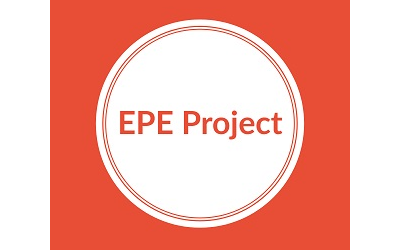Researchers call for scrutiny of employment leave for early pregnancy endings

OU researchers have highlighted the need for the scrutiny of any new proposals around employment leave for early pregnancy endings.
Their call comes on the back of a new research paper by Professor Jo Brewis at The Open University (OU) Business School and her colleague, Dr Victoria Newton, who leads the OU’s Reproduction, Sexualities and Sexual Health Research Group, in collaboration with researchers at the Universities of Plymouth and Essex, and University College London.
The paper: Employment leave for early pregnancy endings: A biopolitical reproductive governance analysis in England and Wales, published in Gender, Work & Organization, reports that legislatures in different countries (and in England and Wales especially), reveal a range of inconsistent entitlements to paid leave from work in the case of pregnancies which don’t produce a living infant – i.e. due to miscarriage, abortion, ectopic pregnancies (where the fertilised egg implants itself outside the uterus) and molar pregnancies (when there's a problem with a fertilised egg, so the foetus and placenta do not develop the way they should after conception).
First analysis of inclusions and exclusions round status of the foetus
Professor Brewis said:
“We believe that this research is important because it is, as far as we are aware, the first to analyse the different inclusions and exclusions which laws across the world, but in England and Wales in particular, generate around paid employment leave and the status of the foetus or baby. One important point here is that all existing laws do this to a greater or lesser extent, and we call for all policymakers, whether in legislative or employment contexts, to carefully assess the consequences of new proposals around employment leave for pregnancy endings.”
Dr Newton added:
“At present, where workplace policies exist in relation to early pregnancy endings, these often relate to miscarriage policy, which does not account for abortion and centres around bereavement. The framing of leave entitlement in this way leads to stigmatisation around ‘deserving’ and ‘undeserving’ pregnancy endings. The physical process of miscarriage and abortion are similar with heavy bleeding and often considerable pain. We know from research that individual responses to both miscarriage and abortion vary greatly, but that internalised stigma is amplified by secrecy and silence.”
While analysing their findings, the researchers were surprised by the sheer range of different categorisations in these laws, and the complex inclusions and exclusions this creates both between but also within legislatures.
Lead author of the paper, Dr Aimee Middlemiss, University of Exeter and University of Plymouth, said:
“Entitlements to time away from work after a pregnancy ending are often not based on the physical needs of the post-pregnant woman, but on ideas about the status of the foetus or baby which died, or the type of pregnancy which ended. It would be fairer and more equitable to have at least some employment leave based on the physical recovery needs of the woman or other person who underwent the pregnancy ending.”
Call for fairer proposals for change
Dr Middlemiss concludes:
“At present, what leave is available in England and Wales is often based on assumptions about a bereavement having occurred. Whilst this does apply to some women and also their partners, this policy approach excludes some types of pregnancy endings.”
The researchers concluded their paper with a call to policymakers in all contexts to carefully assess the consequences of new ideas around leaves for pregnancy endings and to formulate inclusive and fair proposals for change.
About OU Open Societal Challenges
This paper is based on the Early pregnancy endings and the workplace project led by Professor Jo Brewis, which is supported by the OU’s Open Societal Challenges Programme, which aims to tackle some of the most important societal challenges of our time through impact-driven research.
The Programme’s focus on the themes of Tackling Inequalities, Living Well and Sustainability aligns well with the OU’s mission to be open to people, places, methods and ideas.
The Programme’s aim is to apply excellent research by OU academics to some of the most pressing challenges facing people across the UK and worldwide to transform lives and drive societal change.
Contact our news team
For all out of hours enquiries, please telephone +44 (0)7901 515891
Contact detailsNews & articles

OU joins NBIC’s national biofilm research network
The Open University is proud to announce its inclusion in the National Biofilms Innovation Centre (NBIC) consortium as part of NBIC’s sixth accession round.